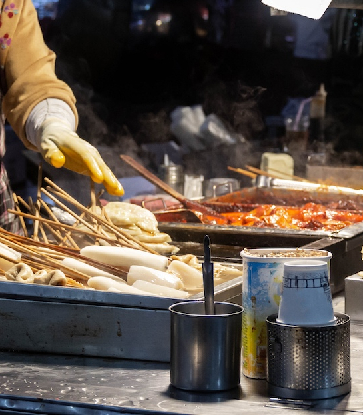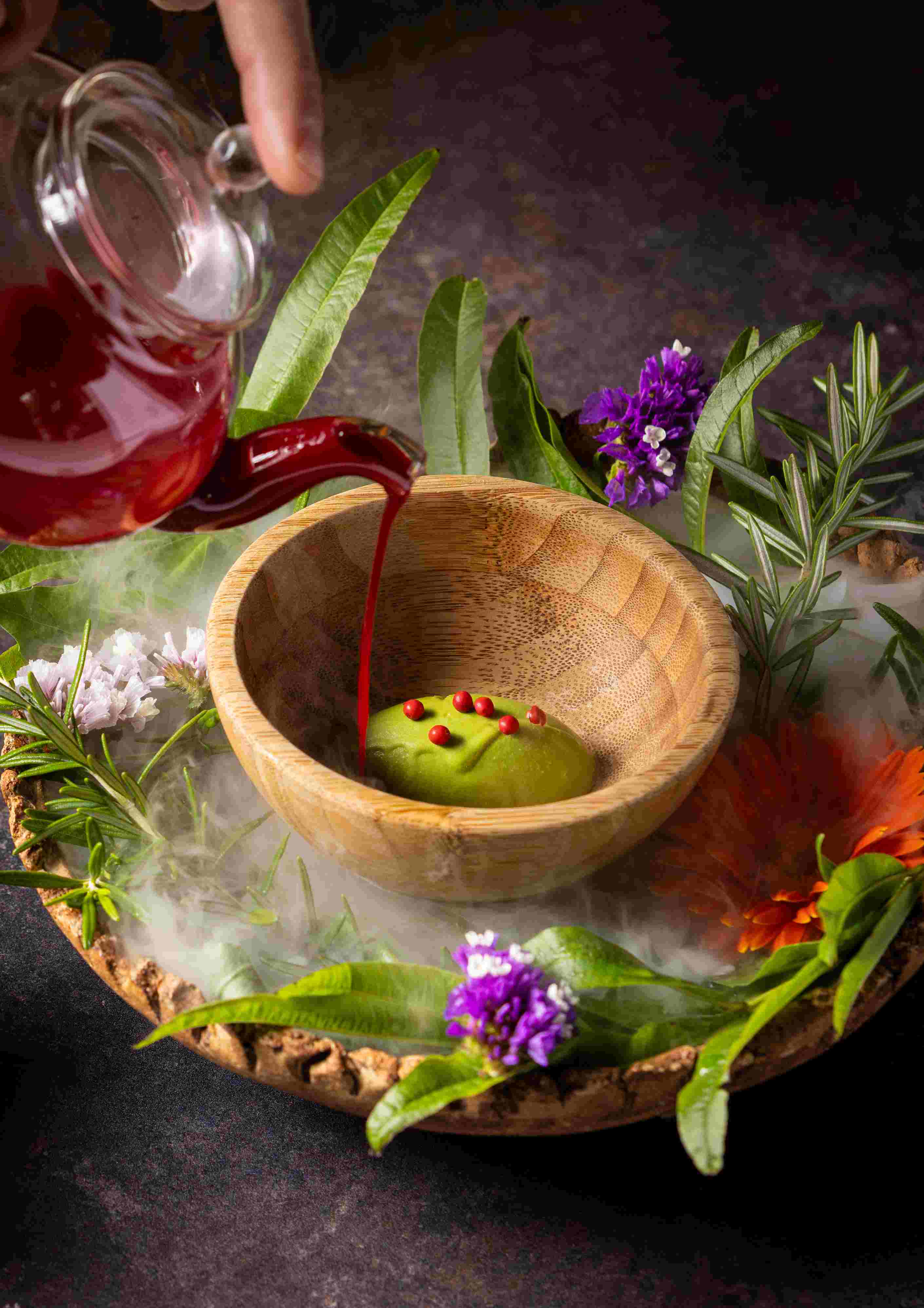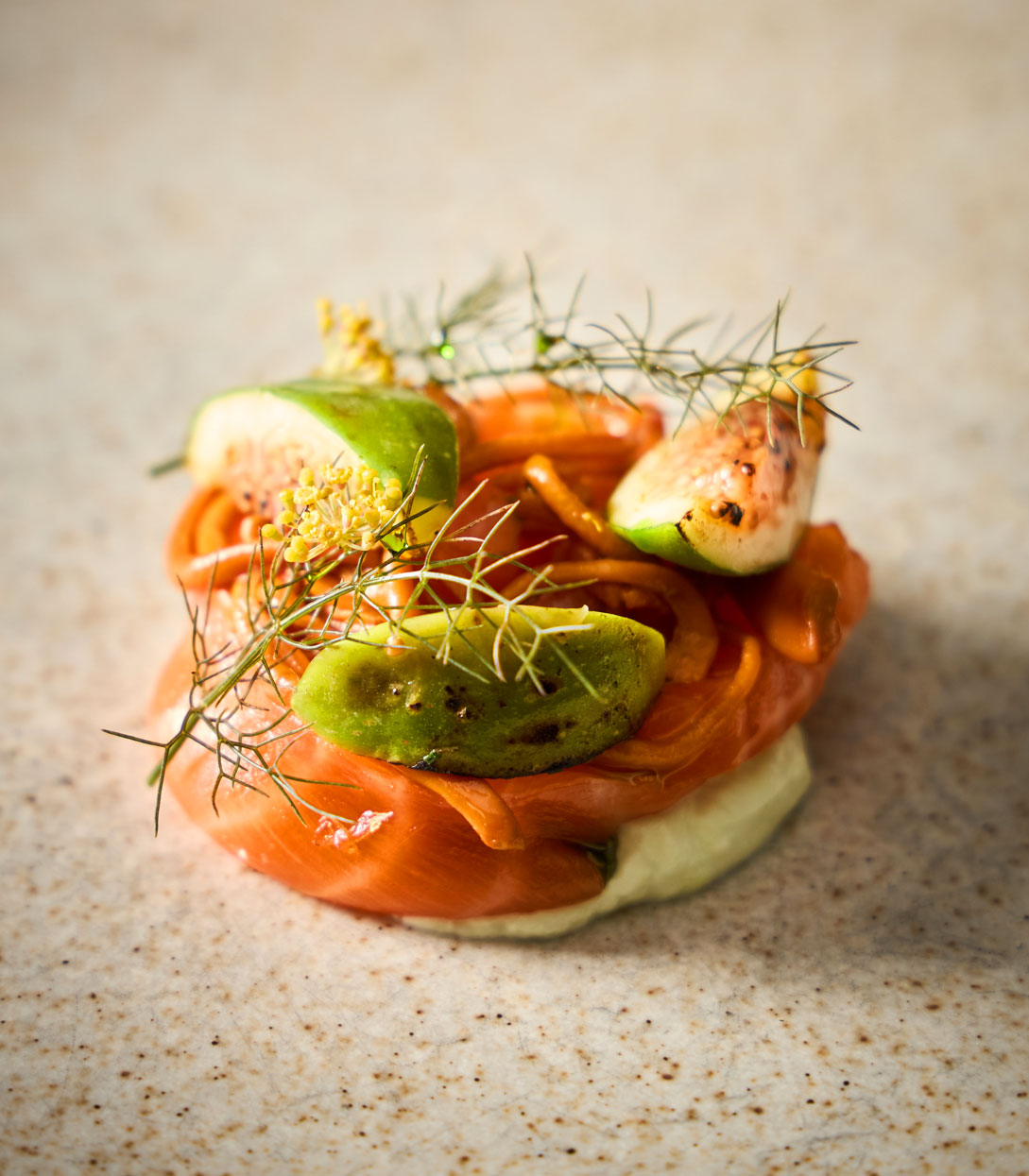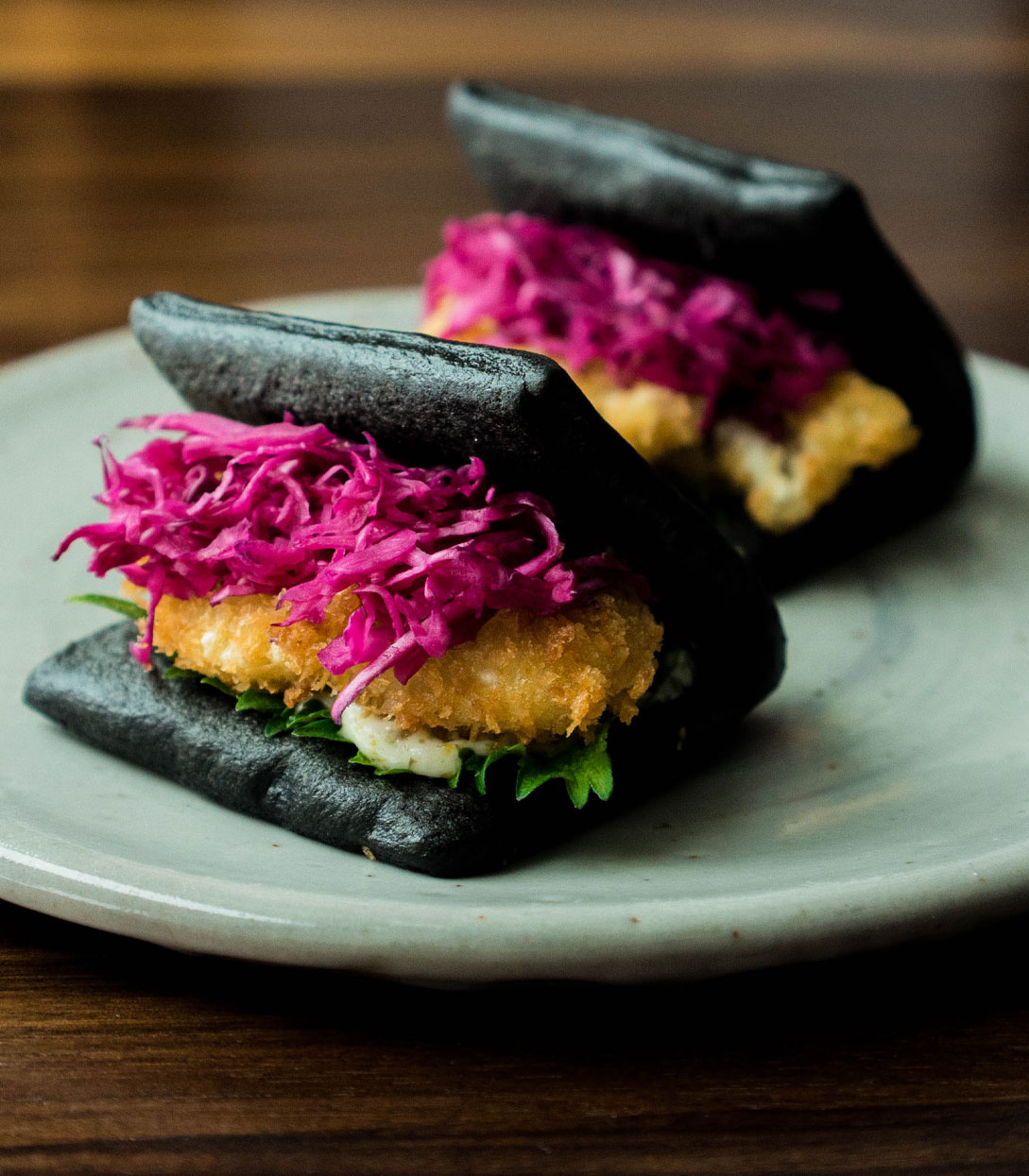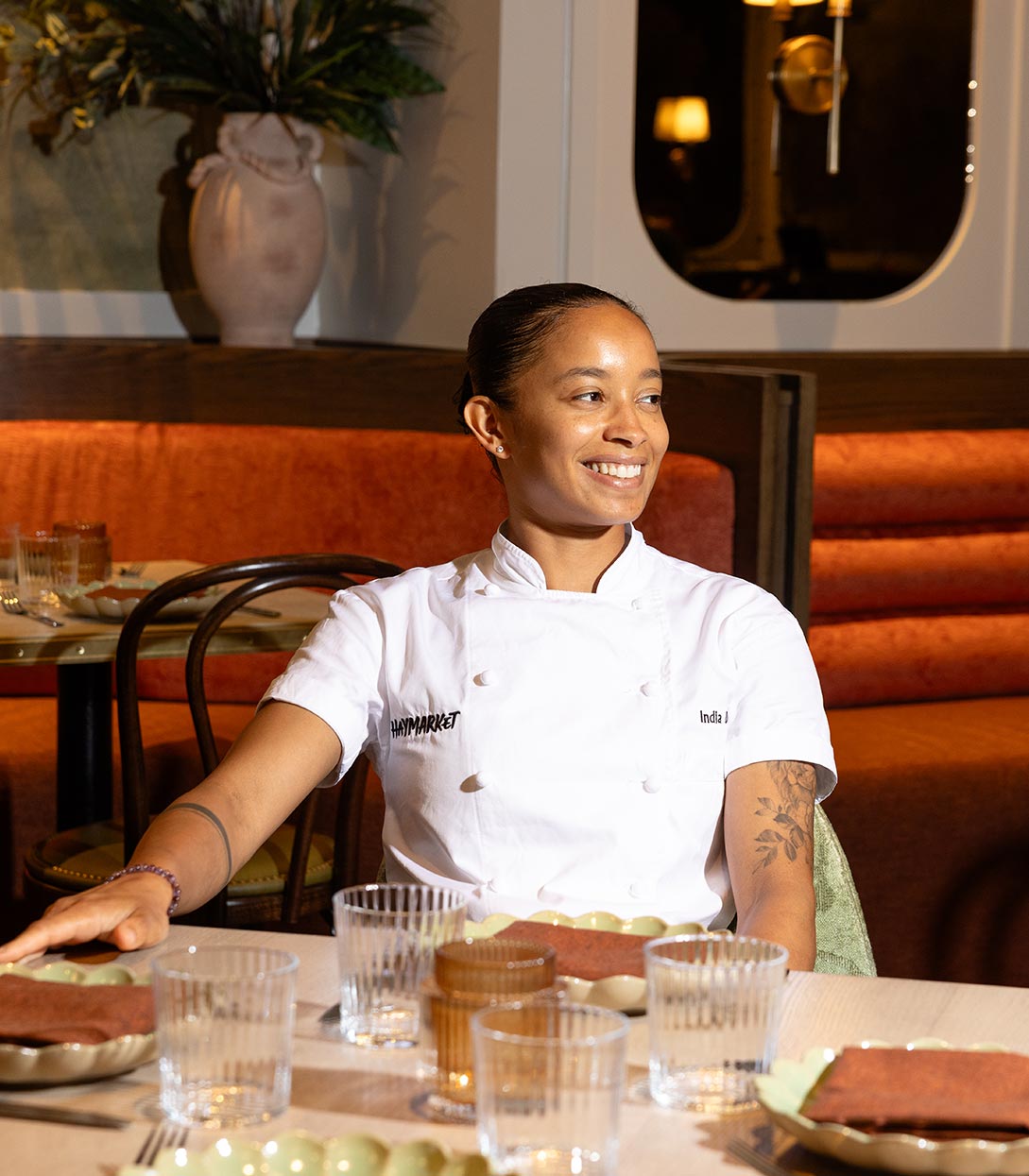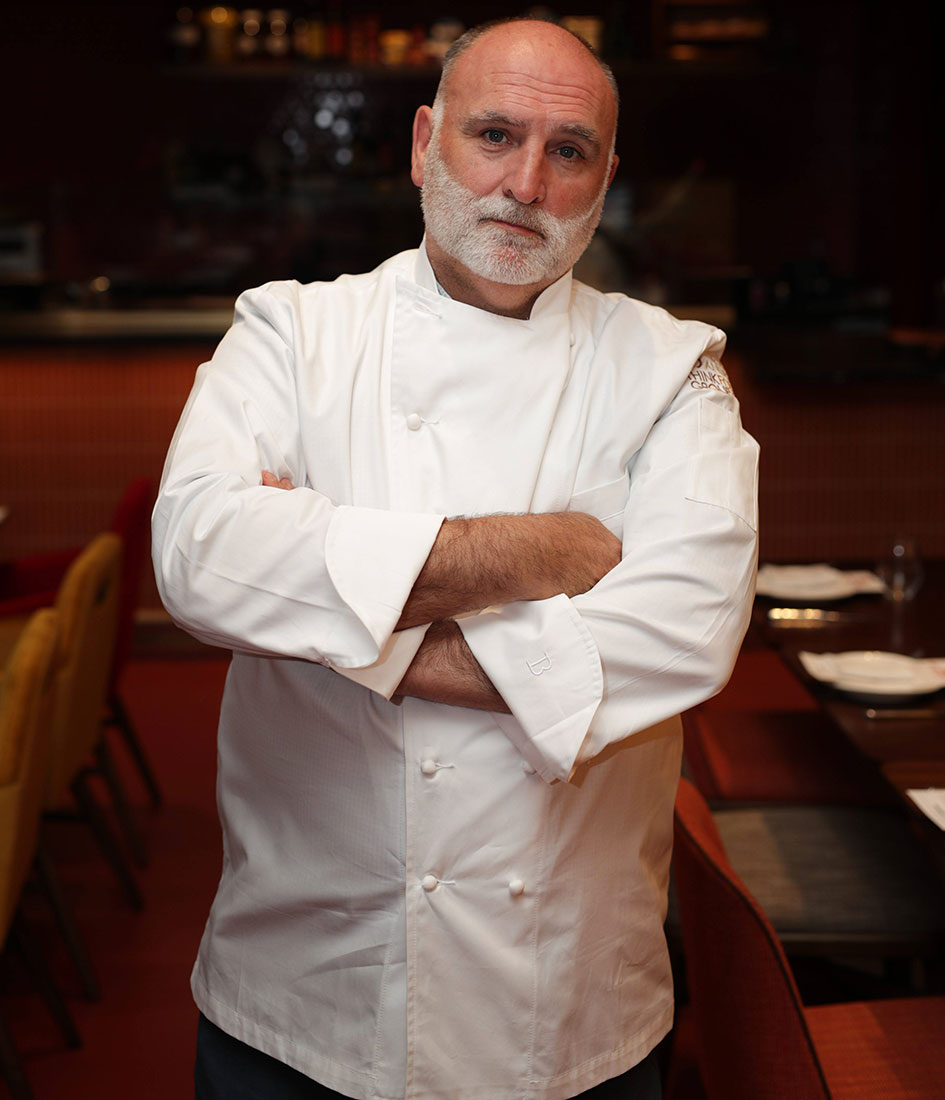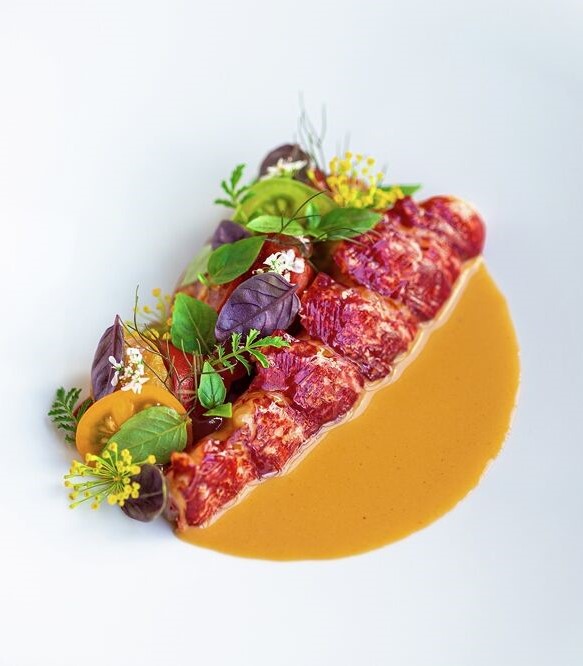Located in New York City’s Lincoln Center in the Upper West Side, Chef Kwame Onwuachi’s Tatiana, is named after his sister and is an homage to his West African, Caribbean, and Creole roots. Before opening the restaurant, “I looked at the land that was there before Lincoln Center and saw that it was Old San Juan Hill – a predominantly Black and Afro-Latin neighborhood that was pushed out,” he says. Knowing the history of the land made him feel even more inspired to create a restaurant that “honors the people who made the city what it is.”
Chef Kwame approaches all of his big decisions with this level of intention, specifically focusing on his culture and upbringing. Raised in the Bronx, he worked alongside his mom beginning at the age of five, helping her with her catering business. This was just the beginning of what would be an exciting and rewarding relationship with food – with accolades like praise from The New York Times and a James Beard Award (Rising Star Chef of the Year 2019).
Chef Kwame’s love for food runs deep and can be traced back to his grandmother, who had her own restaurant in the South during the Jim Crow period. “When Black people couldn't go out to eat at restaurants or other places without being harassed, we had our own little communities,” he says, pointing to the prevalence of juke joints and restaurants as safe spaces during that time. He adds that his family always had restaurants or juke joints in the back of their houses, fostering community and bringing people together during an incredibly difficult time for Black people.

Now, Chef Kwame has taken inspiration from his grandmother’s ventures, creating a strong, unique community and culture of his own at Tatiana. “I think the city really showed up for us because what we were doing was authentic,” he says, adding that a wide range of people dine at the restaurant. “The community that comes to the restaurant comes from all walks of life. You'll see somebody with a do-rag sitting next to somebody in a tuxedo going to the opera,” he adds.
Maintaining an impressive level of buzz and popularity isn’t easy – especially in a city that’s known for its food scene – but Chef Kwame attributes his success to his strong team and drive. “The staff sees themselves reflected in the cuisine, reflected in the music. And I think that's what makes it really special,” he says. And, “I’ve always been driven,” Chef Kwame says, adding that his entrepreneurial journey began at an early age when he launched a catering company and sold candy on the subway. “Now, I’m thinking about how I can continue to push the culture,” he says, emphasizing that he wants to focus on, and highlight, his West African, Caribbean, and Creole roots in his food. “I just want to continue to share that and also create safe spaces for people,” he says.

Along with creating a safe space, Chef Kwame has crafted a unique culinary experience. His secret sauce? “If a dish tells a story, it has a soul,” he says. “You're not just cooking for perfect seasoning. You’re cooking to share something with someone. I always try to envelop stories into my cuisine and really get some intention behind it…I try to dive deep into my culture,” he says.
The intention shines through in the decor of the space, too. “The decor is based on New York in subtle ways,” Chef Kwame points out, highlighting gold chains that represent chain link fences he used to hop with other kids and iridescent columns that resemble rainbow slick that lines the asphalt after a fire hydrant goes off.
And, if the restaurant’s buzz isn’t exciting enough, Chef Kwame has something new up his sleeve: Dōgon, a restaurant set to open in Washington, D.C. this spring.








